List of Nobel laureates affiliated with Princeton University
The Nobel Prizes are awarded annually by the Royal Swedish Academy of Sciences, the Karolinska Institute, and the Norwegian Nobel Committee to individuals who make outstanding contributions in the fields of chemistry, physics, literature, peace, and physiology or medicine.[1] They were established by the 1895 will of Alfred Nobel, which dictates that the awards should be administered by the Nobel Foundation. Another prize, the Nobel Memorial Prize in Economic Sciences, was established in 1968 by the Sveriges Riksbank, the central bank of Sweden, for contributors to the field of economics.[2] Each prize is awarded by a separate committee; the Royal Swedish Academy of Sciences awards the Prizes in Physics, Chemistry, and Economics, the Karolinska Institute awards the Prize in Physiology or Medicine, and the Norwegian Nobel Committee awards the Prize in Peace.[3] Each recipient receives a medal, a diploma and a cash prize that has varied throughout the years.[2] In 1901, the winners of the first Nobel Prizes were given 150,782 SEK, which is equal to 7,731,004 SEK in December 2007. In 2008, the winners were awarded a prize amount of 10,000,000 SEK.[4] The awards are presented in Stockholm in an annual ceremony on December 10, the anniversary of Nobel's death.[5]
In October 2008, 11 then-current faculty and research staff at Princeton University were Nobel laureates.[6] By 2013, the cumulative total of Nobel laureates affiliated with Princeton was 36. Princeton claims laureates who attended as students or who were employed when they received the Prize or did the research leading to it.[7] Woodrow Wilson, the former president of Princeton, was the first Princeton-affiliated laureate, winning the Nobel Peace Prize in 1919.[8] Four Nobel Prizes were shared by Princeton laureates: James Cronin and Val Logsdon Fitch won the 1980 Nobel Prize in Physics,[9] Russell Alan Hulse and Joseph Hooton Taylor, Jr. won the 1993 Nobel Prize in Physics,[10] David Gross and Frank Wilczek won the 2004 Nobel Prize in Physics,[11] and Thomas Sargent and Christopher Sims won the 2011 Nobel Memorial Prize in Economics.[12] Seventeen Princeton laureates have won the Nobel Prize in Physics, more than any other category.[7] Twenty-five laureates were members of the Princeton faculty, 12 laureates received their Ph.D. at Princeton, and four laureates, Woodrow Wilson, Eugene O'Neill, Gary Becker, and Michael Spence, were Princeton undergraduates.
Laureates
| Year | Image | Laureate | Relation | Category | Rationale |
|---|---|---|---|---|---|
| 1919 |  |
Wilson, WoodrowWoodrow Wilson | Class of 1879; member of the faculty and president emeritus of the University | Peace | 28th President of the United States; founder of the League of Nations.[8] |
| 1927 |  |
Compton, ArthurArthur Compton (shared with Charles Thomson Rees Wilson) |
Ph.D., 1916 | Physics | "for his discovery of the effect named after him"[13] |
| 1936 |  |
O'Neill, EugeneEugene O'Neill | Class of 1910 | Literature | "for the power, honesty and deep-felt emotions of his dramatic works, which embody an original concept of tragedy"[14] |
| 1937 |  |
Davisson, ClintonClinton Davisson (shared with George Paget Thomson) |
Ph.D., 1911 | Physics | "for their experimental discovery of the diffraction of electrons by crystals"[15] |
| 1945 |  |
Pauli, WolfgangWolfgang Pauli |
Professor at Institute for Advanced Study | Physics | "for the discovery of the Exclusion Principle, also called the Pauli Principle"[16] |
| 1951 | McMillan, EdwinEdwin McMillan (shared with Glenn T. Seaborg) |
Ph.D., 1933 | Chemistry | "for their discoveries in the chemistry of transuranium elements"[17] | |
| 1956 |  |
Bardeen, JohnJohn Bardeen (shared with William Shockley and Walter Houser Brattain) |
Ph.D., 1936 | Physics | "for their researches on semiconductors and their discovery of the transistor effect"[18] |
| 1961 | 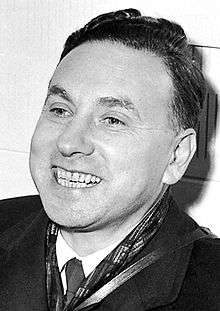 |
Hofstadter, RobertRobert Hofstadter (shared with Rudolf Mössbauer) |
Ph.D., 1938 | Physics | "for his pioneering studies of electron scattering in atomic nuclei and for his thereby achieved discoveries concerning the structure of the nucleons"[19] |
| 1963 |  |
Wigner, EugeneEugene Wigner | Jones Professor of Mathematical Physics | Physics | "for his contributions to the theory of the atomic nucleus and the elementary particles, particularly through the discovery and application of fundamental symmetry principles"[20] |
| 1965 | 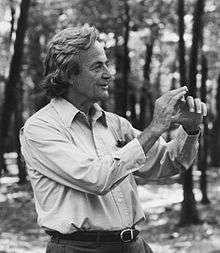 |
Feynman, RichardRichard Feynman (shared with Sin-Itiro Tomonaga and Julian Schwinger) |
Ph.D., 1942 | Physics | "for their fundamental work in quantum electrodynamics, with deep-ploughing consequences for the physics of elementary particles"[21] |
| 1977 |  |
Anderson, Philip WarrenPhilip Warren Anderson (shared with Nevill Francis Mott and John Hasbrouck Van Vleck) |
Joseph Henry Professor of Physics | Physics | "for their fundamental theoretical investigations of the electronic structure of magnetic and disordered systems"[22] |
| 1978 |  |
Penzias, Arno AllanArno Allan Penzias (shared with Pyotr Kapitsa and Robert Woodrow Wilson) |
Visiting lecturer with rank of professor | Physics | "for their discovery of cosmic microwave background radiation"[23] |
| 1979 | Lewis, ArthurArthur Lewis (shared with Theodore Schultz) |
James Madison Professor of Political Economy | Economics | "for their pioneering research into economic development research with particular consideration of the problems of developing countries."[24] | |
| 1979 |  |
Weinberg, StevenSteven Weinberg (shared with Sheldon Lee Glashow and Abdus Salam) |
Ph.D., 1957 | Physics | "for their contributions to the theory of the unified weak and electromagnetic interaction between elementary particles, including, inter alia, the prediction of the weak neutral current"[25] |
| 1980 |  |
Cronin, JamesJames Cronin (shared with Val Logsdon Fitch) |
Professor of physics | Physics | "for the discovery of violations of fundamental symmetry principles in the decay of neutral K-mesons"[9] |
| 1980 | Fitch, Val LogsdonVal Logsdon Fitch (shared with James Cronin) |
Fogg Brackett Professor of Physics | Physics | "for the discovery of violations of fundamental symmetry principles in the decay of neutral K-mesons"[9] | |
| 1992 |  |
Becker, GaryGary Becker | Class of 1951 | Economics | "for having extended the domain of microeconomic analysis to a wide range of human behaviour and interaction, including non-market behaviour."[26] |
| 1993 |  |
Morrison, ToniToni Morrison | Robert F. Goheen Professor in the Humanities | Literature | "who in novels characterized by visionary force and poetic import, gives life to an essential aspect of American reality"[27] |
| 1993 | 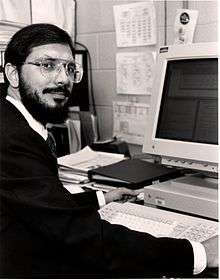 |
Hulse, Russell AlanRussell Alan Hulse (shared with Joseph Hooton Taylor, Jr.) |
Principal research physicist, Princeton Plasma Physics Laboratory | Physics | "for the discovery of a new type of pulsar, a discovery that has opened up new possibilities for the study of gravitation"[10] |
| 1993 |  |
Taylor, Jr., Joseph HootonJoseph Hooton Taylor, Jr. (shared with Russell Alan Hulse) |
James S. McDonnell Distinguished University Professor of Physics | Physics | "for the discovery of a new type of pulsar, a discovery that has opened up new possibilities for the study of gravitation"[10] |
| 1994 |  |
Nash, John ForbesJohn Forbes Nash (shared with John Harsanyi and Reinhard Selten) |
Ph.D., 1950, senior research mathematician | Economics | "for their pioneering analysis of equilibria in the theory of non-cooperative games."[28] |
| 1995 |  |
Wieschaus, Eric F.Eric F. Wieschaus (shared with Edward B. Lewis and Christiane Nüsslein-Volhard) |
Squibb Professor in Molecular Biology | Physiology or Medicine | "for their discoveries concerning the genetic control of early embryonic development"[29] |
| 1996 |  |
Smalley, RichardRichard Smalley (shared with Robert Curl and Harold Kroto) |
Ph.D., 1974 | Chemistry | "for their discovery of fullerenes"[30] |
| 1998 | Tsui, Daniel CheeDaniel Chee Tsui (shared with Robert B. Laughlin and Horst Ludwig Störmer) |
Arthur Legrand Doty Professor of Electrical Engineering | Physics | "for their discovery of a new form of quantum fluid with fractionally charged excitations"[31] | |
| 2000 | 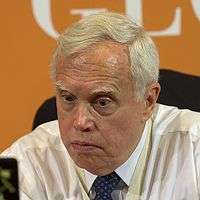 |
Heckman, JamesJames Heckman (shared with Daniel McFadden) |
M.A., 1968, Ph.D., 1971 | Economics | "for his development of theory and methods for analyzing selective samples."[32] |
| 2001 | 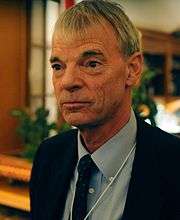 |
Spence, MichaelMichael Spence (shared with George Akerlof and Joseph Stiglitz) |
Class of 1966 | Economics | "for their analyses of markets with asymmetric information."[33] |
| 2002 |  |
Kahneman, DanielDaniel Kahneman (shared with Vernon L. Smith) |
Eugene Higgins Professor of Psychology and professor of public affairs | Economics | "for having integrated insights from psychological research into economic science, especially concerning human judgment and decision-making under uncertainty."[34] |
| 2004 | |
Gross, DavidDavid Gross (shared with H. David Politzer and Frank Wilczek) |
Thomas Jones Professor of Mathematical Physics Emeritus | Physics | "for the discovery of asymptotic freedom in the theory of the strong interaction"[11] |
| 2004 |  |
Wilczek, FrankFrank Wilczek (shared with David Gross and H. David Politzer) |
Ph.D., 1975 | Physics | "for the discovery of asymptotic freedom in the theory of the strong interaction"[11] |
| 2007 |  |
Maskin, EricEric Maskin (shared with Leonid Hurwicz and Roger Myerson) |
Visiting lecturer with the rank of professor of economics | Economics | "for having laid the foundations of mechanism design theory."[35] |
| 2008 |  |
Shimomura, OsamuOsamu Shimomura (shared with Martin Chalfie and Roger Tsien) |
Research associate in biology | Chemistry | "for the discovery and development of the green fluorescent protein, GFP"[36] |
| 2008 |  |
Krugman, PaulPaul Krugman | Professor of economics and international affairs | Economics | "for his analysis of trade patterns and location of economic activity."[37] |
| 2010 | .jpg) |
Vargas Llosa, MarioMario Vargas Llosa | Visiting professor of Latin American Studies | Literature | "for his cartography of structures of power and his trenchant images of the individual's resistance, revolt, and defeat"[38] |
| 2011 |  |
Sargent, ThomasThomas Sargent (shared with Christopher Sims) |
Visiting professor of economics | Economics | "for their empirical research on cause and effect in the macroeconomy"[12] |
| 2011 |  |
Sims, ChristopherChristopher Sims (shared with Thomas Sargent) |
Harold B. Helms Professor of Economics | Economics | "for their empirical research on cause and effect in the macroeconomy"[12] |
| 2012 |  |
Shapley, LloydLloyd Shapley (shared with Alvin E. Roth) |
Ph.D., 1953 | Economics | "for the theory of stable allocations and the practice of market design"[39] |
| 2013 | Rothman, JamesJames Rothman (shared with Randy Schekman and Thomas C. Südhof) |
Squibb Professor in Molecular Biology[40] | Physiology or Medicine | "for their discoveries of machinery regulating vesicle traffic, a major transport system in our cells"[41] | |
| 2015 |  |
McDonald, Arthur B.Arthur B. McDonald (shared with Takaaki Kajita) |
Professor of Physics | Physics | "for the discovery of neutrino oscillations, which shows that neutrinos have mass"[42] |
| 2015 | Lindahl, TomasTomas Lindahl (shared with Paul L. Modrich and Aziz Sancar) |
Postdoctoral researcher | Chemistry | "for mechanistic studies of DNA repair"[43] | |
| 2015 |  |
Deaton, AngusAngus Deaton | Dwight D. Eisenhower Professor of Economics and International Affairs | Economics | "for his analysis of consumption, poverty, and welfare"[44] |
| 2016 | Haldane, DuncanDuncan Haldane (shared with David Thouless and J. Michael Kosterlitz) |
Eugene Higgins Professor of Physics | Physics | "for theoretical discoveries of topological phase transitions and topological phases of matter"[45] |
See also
References
- ↑ "Alfred Nobel – The Man Behind the Nobel Prize". Nobel Foundation. Retrieved 2008-10-18.
- 1 2 "The Nobel Prize". Nobel Foundation. Retrieved 2008-10-18.
- ↑ "The Nobel Prize Awarders". Nobel Foundation. Archived from the original on October 15, 2008. Retrieved 2008-10-18.
- ↑ "The Nobel Prize Amounts". Nobel Foundation. Archived from the original on 2008-07-31. Retrieved 2008-10-18.
- ↑ "The Nobel Prize Award Ceremonies". Nobel Foundation. Archived from the original on 2008-08-22. Retrieved 2008-10-18.
- ↑ "Current Nobel Prize winners on Princeton's faculty" (PDF). Princeton University. 2008-10-13. Retrieved 2011-11-18.
- 1 2 "Princeton - Nobel Prize Winners". Princeton University. Retrieved 2013-11-18.
This list includes faculty and staff who were engaged by Princeton at the time they did the research that led to the award, who were employed by the University at the time of the award and those who are currently working at the University.
- 1 2 "Nobel Peace Prize 1919". Nobel Foundation. Retrieved 2008-10-18.
- 1 2 3 "The Nobel Prize in Physics 1980". Nobel Foundation. Retrieved 2008-10-18.
- 1 2 3 "The Nobel Prize in Physics 1993". Nobel Foundation. Retrieved 2008-10-18.
- 1 2 3 "The Nobel Prize in Physics 2004". Nobel Foundation. Retrieved 2008-10-18.
- 1 2 3 "The Sveriges Riksbank Prize in Economic Sciences in Memory of Alfred Nobel 2011". Nobel Foundation. Retrieved 2011-11-18.
- ↑ "Nobel Prize in Physics 1927". Nobel Foundation. Retrieved 2008-10-18.
- ↑ "Nobel Prize in Literature 1936". Nobel Foundation. Retrieved 2008-10-18.
- ↑ "The Nobel Prize in Physics 1937". Nobel Foundation. Retrieved 2008-10-18.
- ↑ "The Nobel Prize in Physics 1945". Nobel Foundation.
- ↑ "The Nobel Prize in Chemistry 1951". Nobel Foundation. Retrieved 2008-10-18.
- ↑ "The Nobel Prize in Physics 1956". Nobel Foundation. Retrieved 2008-10-18.
- ↑ "The Nobel Prize in Physics 1961". Nobel Foundation. Retrieved 2008-10-18.
- ↑ "The Nobel Prize in Physics 1963". Nobel Foundation. Retrieved 2008-10-18.
- ↑ "The Nobel Prize in Physics 1965". Nobel Foundation. Retrieved 2008-10-18.
- ↑ "The Nobel Prize in Physics 1977". Nobel Foundation. Retrieved 2008-10-18.
- ↑ "The Nobel Prize in Physics 1978". Nobel Foundation. Retrieved 2008-10-18.
- ↑ "The Sveriges Riksbank Prize in Economic Sciences in Memory of Alfred Nobel 1979". Nobel Foundation. Retrieved 2008-10-18.
- ↑ "The Nobel Prize in Physics 1979". Nobel Foundation. Retrieved 2008-10-18.
- ↑ "The Sveriges Riksbank Prize in Economic Sciences in Memory of Alfred Nobel 1992". Nobel Foundation. Retrieved 2008-10-18.
- ↑ "Nobel Prize in Literature 1993". Nobel Foundation. Retrieved 2008-10-18.
- ↑ "The Sveriges Riksbank Prize in Economic Sciences in Memory of Alfred Nobel 1994". Nobel Foundation. Retrieved 2008-10-18.
- ↑ "Nobel Prize in Physiology or Medicine 1995". Nobel Foundation. Retrieved 2008-10-18.
- ↑ "The Nobel Prize in Chemistry 1996". Nobel Foundation. Retrieved 2008-10-18.
- ↑ "The Nobel Prize in Physics 1998". Nobel Foundation. Retrieved 2008-10-18.
- ↑ "The Sveriges Riksbank Prize in Economic Sciences in Memory of Alfred Nobel 2000". Nobel Foundation. Retrieved 2008-10-18.
- ↑ "The Sveriges Riksbank Prize in Economic Sciences in Memory of Alfred Nobel 2001". Nobel Foundation. Retrieved 2008-10-18.
- ↑ "The Sveriges Riksbank Prize in Economic Sciences in Memory of Alfred Nobel 2002". Nobel Foundation. Retrieved 2008-10-18.
- ↑ "The Sveriges Riksbank Prize in Economic Sciences in Memory of Alfred Nobel 2007". Nobel Foundation. Retrieved 2008-10-18.
- ↑ "The Nobel Prize in Chemistry 2008". Nobel Foundation. Retrieved 2008-10-18.
- ↑ "The Sveriges Riksbank Prize in Economic Sciences in Memory of Alfred Nobel 2008". Nobel Foundation. Retrieved 2008-10-14.
- ↑ "The Nobel Prize in Literature 2010". Nobel Foundation. Retrieved 2011-11-18.
- ↑ "The Sveriges Riksbank Prize in Economic Sciences in Memory of Alfred Nobel 2012". Nobel Foundation. Retrieved 2011-11-18.
- ↑ James Rothman profile, Yale School of Medicine. Accessed 2013–11–23.
- ↑ "The Nobel Prize in Physiology or Medicine 2013". Nobel Foundation. Retrieved 2011-11-18.
- ↑ "The Nobel Prize in Physics 2015". Nobel Foundation. Retrieved 2015-10-05.
- ↑ "The Nobel Prize in Chemistry 2015". Nobelprize.org. Retrieved 2016-01-10.
- ↑ "The Sveriges Riksbank Prize in Economic Sciences in Memory of Alfred Nobel 2015". Nobel Foundation. Retrieved 2016-01-10.
- ↑ "The Nobel Prize in Physics 2016". Nobelprize.org. Retrieved 2016-10-07.
External links
- Official website of Princeton University
- Official website of the Royal Swedish Academy of Sciences
- Official website of the Nobel Foundation